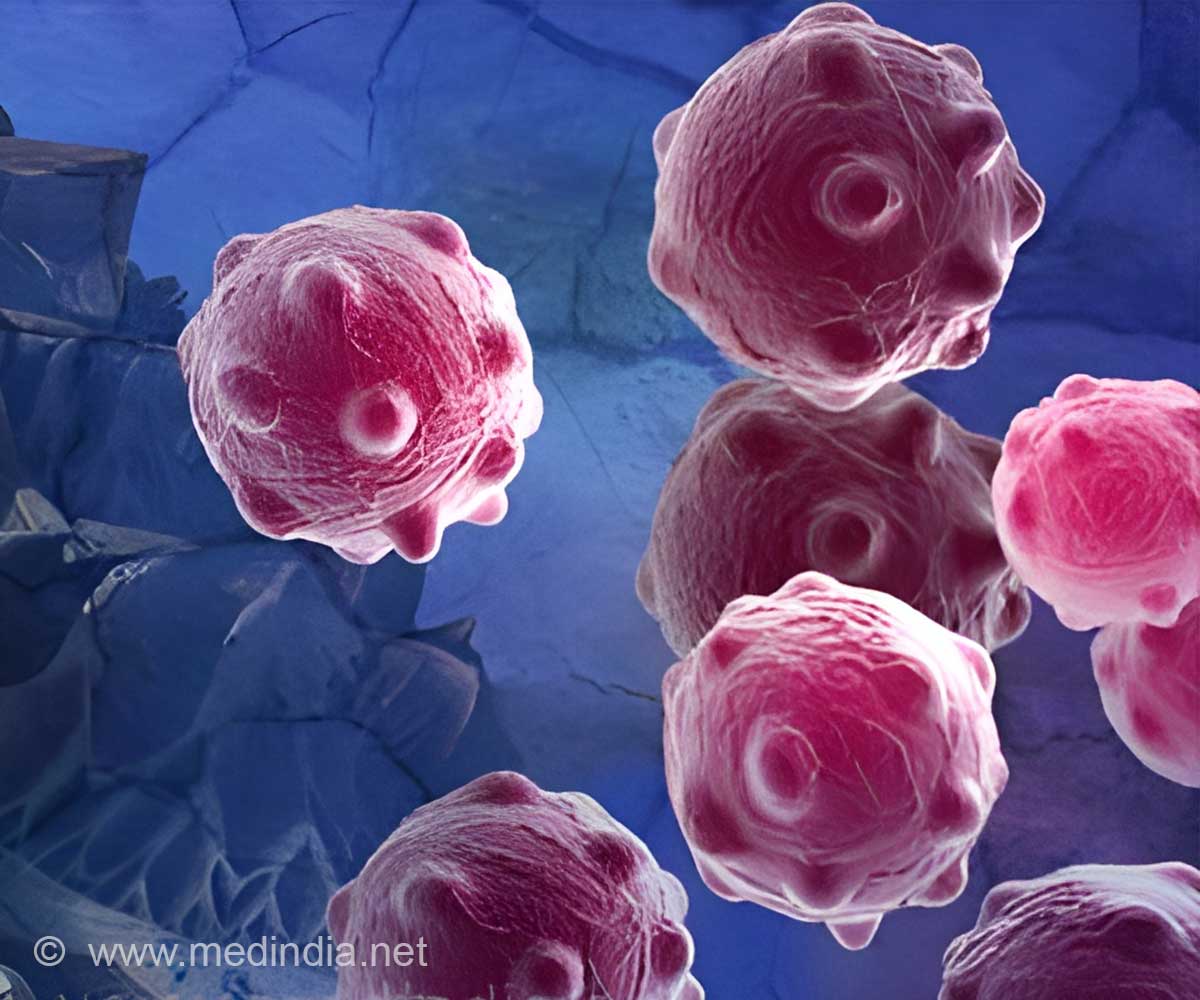
‘Patients suffering from melanoma could benefit from using triple combination therapy by reducing various side effects caused by standard therapy’
Read More..Tweet it Now
Although ACT has produced dramatic results in some of these patients, not all respond, and the therapy has thus far proven less effective against solid tumors. Optimizing ACT could enable more patients with more types of cancer to benefit from the promising therapy.Read More..
Combining ACT with a pan-PIM kinase inhibitor and a PD1 inhibitor improves outcomes in a preclinical model, report researchers at the Medical University of South Carolina (MUSC) in an article published online in October by Clinical Cancer Research.
They showed that this triple combination treatment (PPiT) doubled the migration of anti-tumor T cells to the tumor site and quadrupled survival in mice compared to ACT alone. "With this triple combination therapy, many more T cells persisted.
That's important for ACT, because the longer the transfused T cells say inside the host to fight tumor cells, the better," says Shikhar Mehrotra, Ph.D., senior author of the article, who is co-scientific director of the oncology and immunotherapy programs in the Department of Surgery at the Medical University of South Carolina and a member of the Hollings Cancer Center.
Of the two agents administered along with ACT as part of this triple combination therapy, PD1 inhibitors are far better known. Clinical successes with checkpoint inhibitors, including PD1 and PDL1 inhibitors, ushered in immunotherapy as the fifth pillar of cancer therapy, where it joined the ranks of chemotherapy, surgery, radiotherapy and targeted therapy.
Advertisement
Mehrotra and his team set out to find whether targeting PIM kinase with an inhibitor could help these readministered cells maintain their energy longer.
Advertisement
Mehrotra and his team targeted PIM kinases in T cells to make them act like a specific subtype of T cell, called a central memory T cell. Most ACT trials use rapidly expanding effector T cells (T cells that are ready to attack the tumor), but these T cells often become exhausted when put back in patients. Central memory T cells produce more lasting responses against tumor cells.
When Mehrotra and his team blocked PIM kinases in T cells, the cells started acting like memory T cells, as demonstrated by an increase in cell populations that express central memory T cell markers.
"All cells require energy," says Mehrotra. "If you can control the way that T cells use their energy, you could potentially block them from becoming exhausted. In this case, we targeted PIM kinases and show that, in combination with checkpoint therapy and ACT, we get an improvement in T cell response and tumor control."
Indeed, in a mouse model, the triple combination therapy, or PPiT, better controlled the growth of established melanoma than ACT, checkpoint therapy, or PIM kinase inhibitors alone or dual combinations of ACT and a PIM kinase inhibitor or ACT and checkpoint therapy. In addition, more T cells infiltrated the tumor and had decreased expression of PD1, making it harder for tumors to turn them off.
"We ultimately want to be able to implement this therapeutic approach in the clinic," says Mehrotra. "However, we must first explore any potential side effects of the pan-PIM kinase inhibitors and determine whether a more selective inhibitor targeting just one type of PIM kinase might be as effective while posing fewer potential side effects."
Source-Eurekalert










